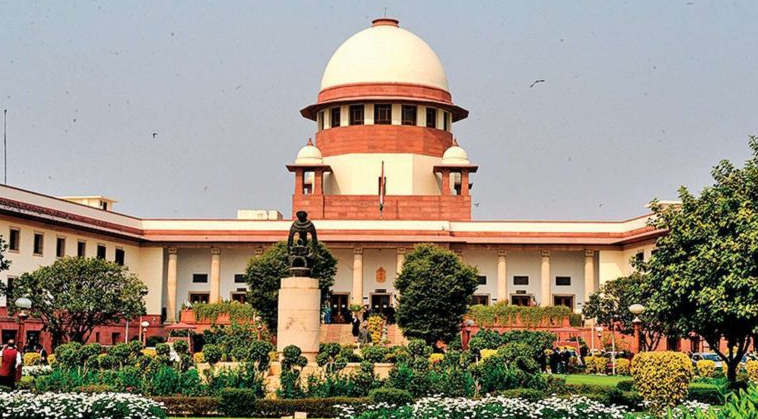Supreme Court Issues Comprehensive Guidelines to Curb Misuse of Abetment of Suicide Law (GS Paper 2, Governance)

Overview
- In a landmark decision, the Supreme Court of India has established important guidelines to prevent the misuse of laws related to the abetment of suicide, particularly in workplace settings.
- This ruling comes in the context of a tragic case involving Rajeev Jain, a salesman who died by suicide amid allegations of harassment from his senior officers. The Court's decision aims to clarify the legal standards required for such cases, ensuring that the law is applied judiciously while protecting individuals from wrongful prosecution.
Context of the Case
- Rajeev Jain had served his company for over 23 years but was allegedly subjected to intense pressure from his superiors to accept a Voluntary Retirement Scheme (VRS).
- After consistently refusing to comply with their demands, Jain took his own life.
- His brother subsequently filed a case against the senior officers, accusing them of abetting Jain's suicide due to their alleged harassment.
- Initially, the Allahabad High Court recognized a connection between the workplace pressure and Jain's tragic decision.
- However, the Supreme Court, upon review, found this assessment to lack sufficient evidence for a prima facie case of abetment.
Supreme Court's Ruling
In its ruling, the Supreme Court provided crucial clarifications regarding the application of abetment laws:
- Direct Incitement Required: The Court emphasized that, for a case of abetment of suicide to be valid, there must be clear and alarming encouragement or incitement from the accused. It rejected the notion that emotional disputes or disagreements in a professional setting could automatically lead to abetment claims. The ruling calls for concrete evidence of intent and actions directly linked to the suicide.
- Categories of Relationships: The Court delineated two primary categories in which abetment claims might arise:
- Personal Relationships: In intimate or familial contexts, while emotional disputes can create psychological distress, they do not constitute abetment unless there is clear, intentional harm. A simple argument or a harsh exchange is insufficient for legal action.
- Professional Relationships: For workplace scenarios, the Court stated that only extreme levels of harassment—beyond routine professional disagreements—would meet the criteria for abetment. The ruling stresses that workplace conduct must rise to a level of serious misconduct that causes significant distress to the employee.
- Intent and Context: To secure a conviction under Section 306 of the Indian Penal Code (IPC), the Court clarified that it is essential to demonstrate that the accused intended to provoke the suicide or created a situation that left the deceased feeling trapped and without options. This requires a careful examination of the context surrounding the events, rather than relying solely on the act of suicide itself.
Historical Context
The Supreme Court’s decision aligns with a series of previous rulings that have shaped the legal landscape surrounding abetment of suicide:
- M Mohan v The State (2011): In this case, the Supreme Court established a stringent standard for proving abetment, requiring evidence of specific intent demonstrated through actions that compelled the deceased to view suicide as their only option.
- Karnataka High Court Ruling (2023): In a notable case involving the suicide of an employee from the LGBT community, the Court upheld charges against several accused, emphasizing that their actions, including harassment and threats, contributed to the individual's despair. The ruling underscored that emotional harm, particularly in vulnerable individuals, could be grounds for abetment claims.
- Ude Singh v State of Haryana (2019): This case reiterated that abetment must be evaluated on a case-by-case basis, with the requirement that direct or indirect acts of incitement leading to suicide must be established.
Implications of the Ruling
The Supreme Court’s ruling has far-reaching implications for both legal practitioners and individuals in workplace settings:
- Protection Against Misuse: By emphasizing the need for clear evidence of intent and extreme circumstances, the guidelines seek to prevent the misuse of abetment laws, ensuring that individuals are not wrongfully prosecuted for emotional disputes or professional disagreements.
- Clarity for Courts and Law Enforcement: The ruling provides much-needed clarity for lower courts and law enforcement agencies regarding the standards for pursuing abetment charges, promoting a more judicious approach to such sensitive cases.
- Awareness of Mental Health Issues: The decision underscores the importance of recognizing mental health challenges in workplace environments, encouraging employers to foster supportive conditions that mitigate stress and potential harm to employees.
Conclusion
- The Supreme Court’s guidelines represent a significant step toward balancing the protection of vulnerable individuals against workplace harassment while preventing the wrongful application of abetment laws.
- This ruling emphasizes the necessity for clear evidence of intent and significant misconduct before pursuing abetment of suicide charges, thereby reinforcing the importance of context in legal interpretations of such tragic cases.
- As this legal landscape evolves, it calls for greater awareness and sensitivity toward the psychological well-being of individuals in both personal and professional spheres.


